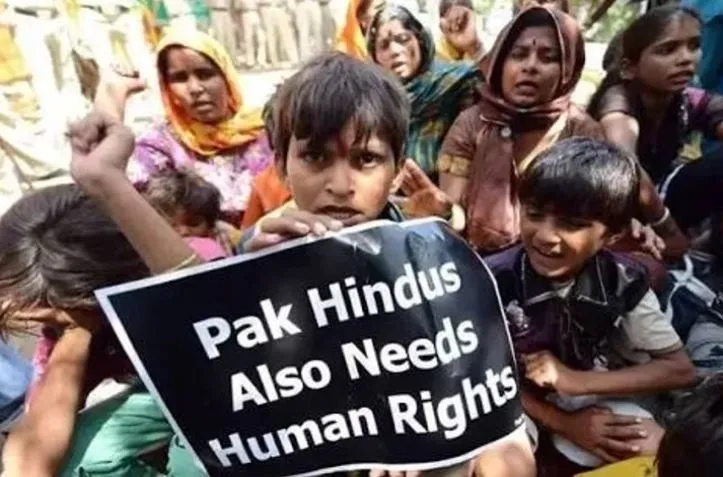US Commission on International Religious Freedom Reports Deteriorating Conditions for Minorities in Pakistan and Calls for Action

Synopsis
Key Takeaways
- Worsening situation for minorities in Pakistan
- USCIRF recommends sanctions on Pakistani officials
- Calls for blasphemy laws repeal
- Need for a binding agreement on minority protections
- Increased incidents of forced conversions
New York, April 26 (NationPress) The US Commission on International Religious Freedom (USCIRF) has identified a deteriorating religious and political atmosphere of fear, intolerance, and violence affecting minorities in Pakistan. The commission has urged President Donald Trump's administration to take decisive action against the Islamic Republic.
It recommended that the US government impose sanctions on Pakistani officials and agencies involved in the serious violations of religious freedoms, including freezing their assets and barring their entry into the US.
The report highlighted that religious minority communities, notably Christians, Hindus, and Shia and Ahmadiyya Muslims, continue to face severe persecution and legal actions under Pakistan's stringent blasphemy laws, as well as violence from both law enforcement and mobs.
According to the USCIRF, perpetrators of such violence rarely face justice.
In response to these alarming trends, the commission urged the US government to reclassify Pakistan as a 'country of particular concern (CPC)' due to its systemic, ongoing, and egregious violations of religious freedom.
Furthermore, the USCIRF called for the removal of the current waiver granted to Pakistan, enabling the US to undertake legally required actions linked to its CPC designation.
Historically, the State Department issued waivers for Islamabad, citing the necessity of preserving a constructive relationship for broader strategic goals.
The commission identified blasphemy laws as a major cause of violence against minorities and proposed a series of actions for the US to protect religious minorities in Pakistan.
It noted that allegations of blasphemy often lead to mob violence, which severely affects religious minority communities.
The USCIRF urged the US to forge a binding agreement with the Pakistani government aimed at safeguarding minorities, which would necessitate the repeal of blasphemy laws and the release of individuals imprisoned under these laws or for their faith.
Until such laws are revoked, the USCIRF argued, the accused should have access to bail, and those making false accusations should be prosecuted under the national penal code.
Additionally, Pakistan must be compelled to hold accountable those who incite or engage in vigilante violence, targeted killings, forced conversions, and other crimes based on religion.
Referring to a report from a United Nations expert group, the USCIRF noted a worsening trend of forced conversions involving Christian and Hindu women and girls in Pakistan.
The experts observed that local authorities often overlook forced marriages that require women and girls to convert to Islam, with the judicial system frequently validating these actions.










